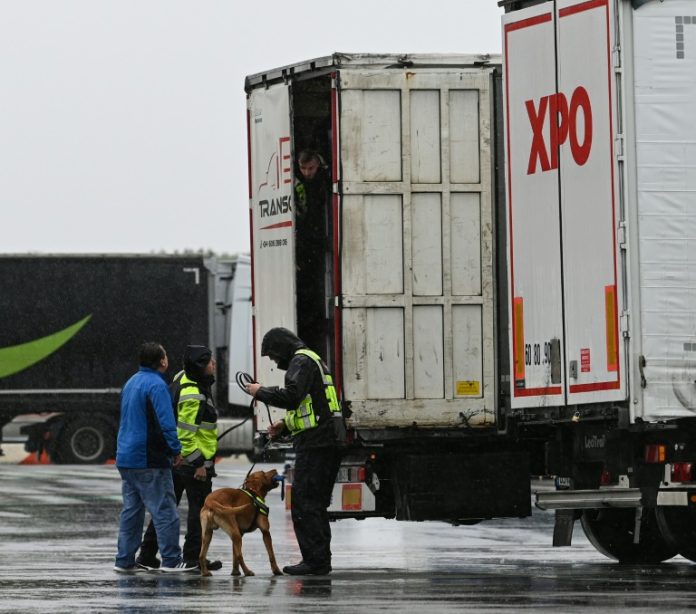The UK will introduce border checks for food, plant and animal products imported from the EU on Wednesday amid fears of higher prices.
Imports of ham, sausages, cured meats, cheese, butter, cream and cut flowers will come under scrutiny.
The government feared the new rules would have a negative impact on the UK economy and increase already rising inflation, so the introduction of the controls has been delayed 5 times.
From Wednesday, companies must present certificates of sanitary and phytosanitary control at the UK border. A number of goods from Northern Ireland will also be subject to full customs checks.
London postponed the checks after leaving the EU customs union and single market in January 2021, but British exports have faced controls on goods travelling in the opposite direction.
Marco Forgione, chief executive of the Institute of Export and International Trade, which represents British importers, says most companies are “very” concerned about the negative impact. Forgione told AFP news agency, citing a survey conducted by the organisation:
Over 70% (of member firms) are very concerned about the impact of these changes.
The government estimates that the changes adopted this week will cost British companies around L330 million (€388 million) a year in extra levies.
The Conservative administration of UK Prime Minister Rishi Sunak says it will not have a significant impact on food inflation. However, this does not allay concerns. Not all businesses will be affected equally, although there is growing alarm among fruit and flower growers who depend on plant imports from EU countries, especially the Netherlands.
The UK’s National Farmers Union says such horticultural businesses face an “existential threat” from the rule changes, The Guardian reports.
The Dutch flower growers’ association VGB has also sent a letter of concern to London. The VGB association stated in a letter:
Delays in transit times and insufficient care in handling these goods could result in substantial damages and losses.
The association also condemned the insufficient number of border control points and called for another delay in the importation of goods, while British MPs asked the government to ensure that bureaucratic delays do not lead to a lack of red roses for Valentine’s Day. Last week, the government said:
Roses from the EU are classed as a low-risk good so will be exempt from controls at the border and not affected by these changes.
The FSB Certification Working Group, which represents 30 trade organisations involved in supplying £100bn worth of food to the UK, has said that new rules requiring importers to notify authorities the day before products arrive in the UK are “unworkable” and could lead to some European businesses deciding to stop supplying the UK.
Currently, EU suppliers do not need to notify the UK government before supplying meat and dairy products, meaning that supplies can arrive in the UK within hours of being dispatched from their farms or processing plants in the EU.
